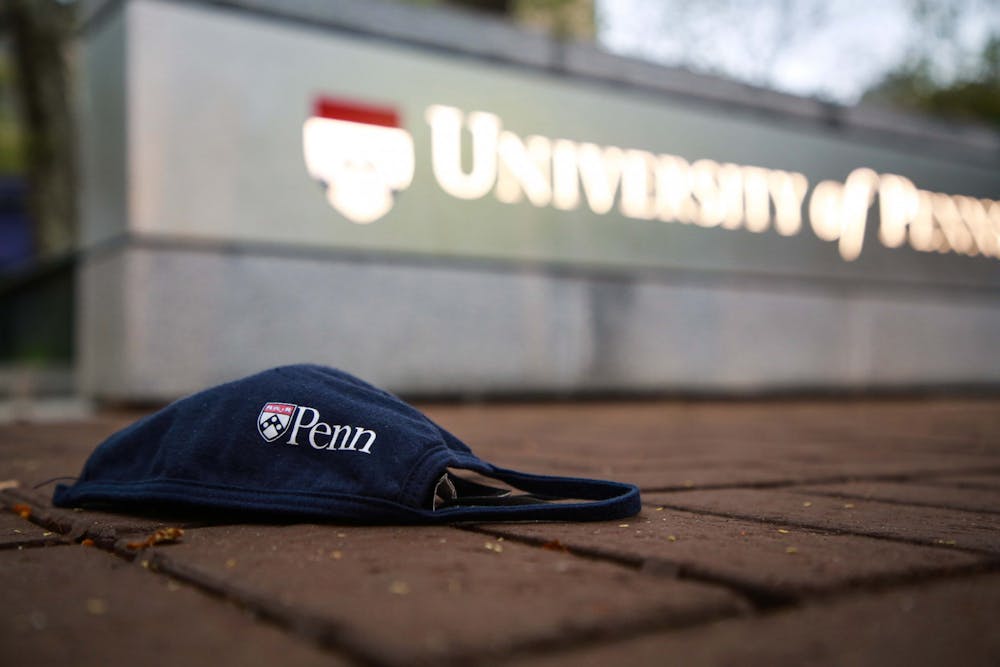
Penn’s COVID-19 case count last week decreased for the first time in two months following guidance from the University and the City of Philadelphia that mandated indoor masking in public spaces.
A total of 304 community members tested positive for COVID-19 during the week from April 17 to April 23 — down from 801 cases the week before. The new data collected through Penn Cares was during the five-day period where the University required all community members to mask in public spaces.
Despite the short-lived mask mandate, undergraduates saw over a 70% decrease in cases, dropping from 557 last week to 165, the lowest number of cases in four weeks. The undergraduate population comprised just over 50% of total cases. Graduate students made up 86 new cases — down from 170 last week.
“Our own reassuring data trends on campus this week allow us to safely align our indoor masking policy with the most recent guidance from the City of Philadelphia,” Chief Wellness Officer Benoit Dubé told The Daily Pennsylvanian on April 26.
In an April 22 email to the Penn community by top administrators — Interim President Wendell Pritchett, Interim Provost Beth Winkelstein, Senior Executive Vice President Craig Carnaroli, and Executive Vice President for the Health System J. Larry Jameson — the University reversed their masking requirement for indoor spaces, citing revised guidance from the City of Philadelphia. Masks will continue to be required in classrooms, health care spaces, and on Penn Transit, the email wrote.
“While the lifting of the City’s masking requirement is reassuring, we must continue to minimize transmission risk whenever possible by socializing outdoors and maintaining physical distancing," Dubé said.
Penn reflected this change in policy by shifting its public health response level from Level 2: "Awareness" to Level 1: "Baseline Mitigation Strategies," which keeps its basic protective strategies but lifts the indoor mask mandate for most indoor spaces.
“The onus is really on personal risk assessment,” Dubé told the DP on April 21. “That’s why we pivoted from alert levels to levels of protective measures, reinforcing people’s agency in this process, and not simply asking, ‘What is Penn doing to protect me?’ but rather reminding people, ‘What can I do to protect myself?’”
On-campus cases reflect a decrease in positivity across the City of Philadelphia. The citywide number of cases plunged during the week from April 17 to April 23, decreasing to 1,018 positive tests — down from 1,730 the week before.
Student Health Service Medical Director Vanessa Stoloff said that she continues to track students reporting sore throat and congestion symptoms through PennOpen Pass, adding that COVID-19 remains a “really variable virus.”
According to research conducted by Penn Medicine in collaboration with Thomas Jefferson University Hospital and the Children's Hospital of Philadelphia, the BA.2 Omicron subvariant has become the dominant strain of COVID-19 found across the Delaware River Valley in recent weeks.
“We’ve known all along that BA.2 is far more transmissible, and I think we’re just seeing people engaging in normal social interactions, in close proximity to one another indoors, where food and drink are being shared,” Dubé told the DP on April 7. “That’s the trifecta — the perfect conditions for people to be exposed and possibly infected.”
“While there may be more people becoming infected, people are not more sick or more likely to become hospitalized,” Dubé said. “That’s a good sign.”
The Daily Pennsylvanian is an independent, student-run newspaper. Please consider making a donation to support the coverage that shapes the University. Your generosity ensures a future of strong journalism at Penn.
Donate







